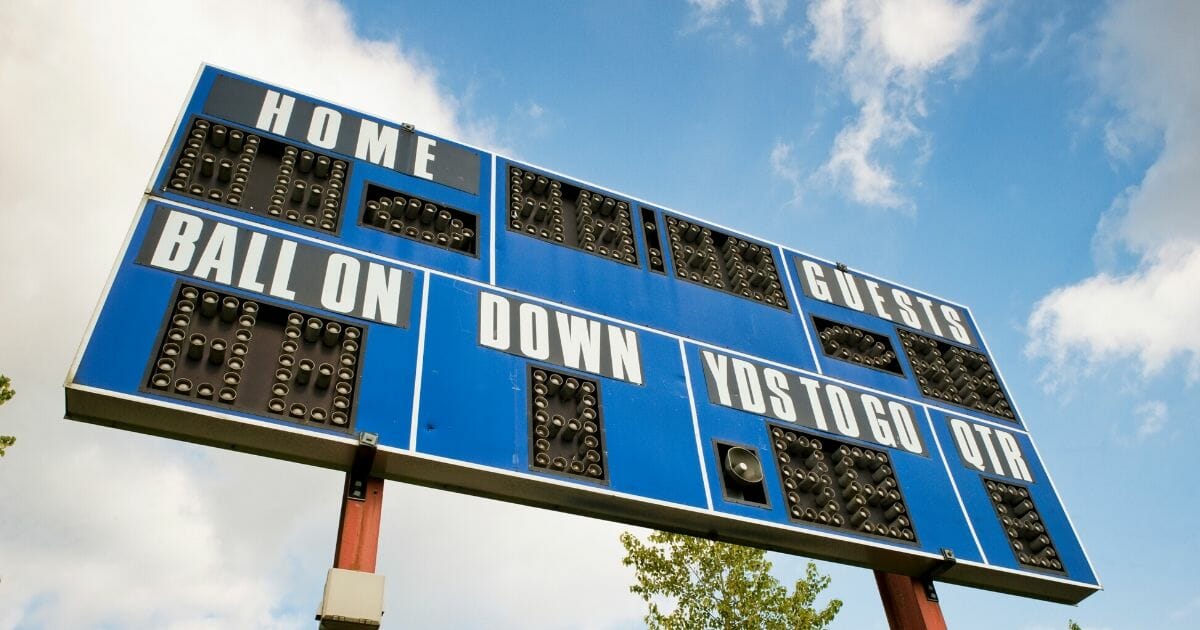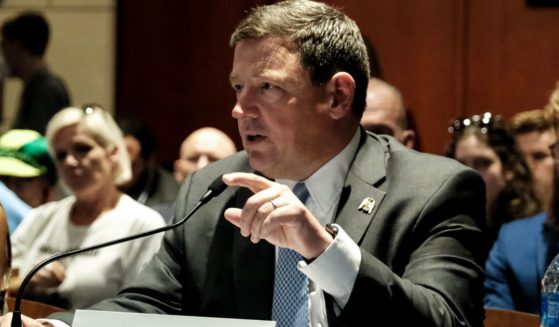
Federal Appeals Court Hands Win to Christian Schools Blocked from Praying Over Loudspeaker at Football Game
At the end of their 2015 football season, two private Christian schools in Florida had the opportunity to play against each other during a state championship.
Due to the schools’ religious beliefs and missions, both schools approached the regulating association ahead of the game to ask if they could pray together over the loudspeaker. The requests were denied, however, citing the “separation of church and state.”
Cambridge Christian School, one of the schools involved, launched a lawsuit against the Florida High School Athletic Association nearly a year later, claiming that the association had infringed on the school’s freedom of speech and freedom to exercise religious acts.
The school’s complaint was dismissed entirely in June of 2017 by the federal district court, which ruled that speech broadcast at the game was considered “government speech” and that the loudspeaker, as a medium, was considered a nonpublic forum.
First Liberty Institute, which represents Cambridge Christian School, filed for an appeal a few months later.
On Nov. 13, 2019, nearly four years after the game occurred, the U.S. Court of Appeals for the Eleventh Circuit reversed portions of the lower court’s dismissal and determined that the school has plausible allegations against FHSAA that deserve to be heard in court.
As the appeals court considered the district court’s decision to dismiss the case, three main debates arose:
Government or Private Speech?
In 2017, the district court determined that the speech over the loudspeaker was government speech, not private speech. This ruling justified FHSAA’s decision and concluded “the school enjoyed no expressive freedoms in that medium.”
This particular distinction is important, because in a 2009 case between Pleasant Grove City and Summum, it was stated that “the Free Speech Clause restricts government regulation of private speech; it does not regulate government speech.”
In order to determine if the speech broadcast over the loudspeaker was government speech, as the district court ruled, the appeals court considered three factors: historical use of the loudspeaker as a medium, if the speech used on the loudspeaker is widely considered government-endorsed and whether or not the government representative held “direct control over the messages conveyed” over the loudspeaker.
Both the district and appeals courts found that both private and government speech has been used over the loudspeaker historically.
In this particular case, both schools that played in the December 2015 championship game reported prior instances in which they were allowed to pray over the loudspeaker before FHSAA-regulated games.
The appeals court also considered whether or not the speech broadcast over the loudspeaker was widely considered endorsed by the government.
Considering this, the appeals court agreed with the district court that messages conveyed over the loudspeaker were — due to the name of the event, “State Championships,” and because the stadium was owned by the government — viewed as government-endorsed.
“It is surely right that views don’t become the state’s merely because they are uttered on a state platform, but being uttered on a state platform surely helps,” the appeals court wrote.
The last factor the court considered when discerning if the speech in question was government or private was whether a government representative held exclusive control over the messages being broadcast.
The court said there was not enough evidence to make a determination.
There were delegated sections in the schedule for messages provided by the schools, but it is unclear how limited those messages were by FHSAA.
After considering the three factors, the appeals court rejected the district court’s rationale for dismissing Cambridge’s complaint based on the determination that the loudspeaker was used for government speech only.
“At least some private speech was disseminated over the public-address system,” the Nov. 13 decision said.
Public, Limited or Nonpublic Forum?
In 2017, the district court said that even if the speech broadcast over the loudspeaker was considered private, it would have taken place in a nonpublic forum, further supporting their decision to dismiss Cambridge Christian’s complaint.
Determining the nature of the forum — the stadium’s public-address system — then becomes important. Before doing so, however, definitions of the different types of forums must be established.
In traditional public forums, such as parks, streets, sidewalks, etc., the government may apply “reasonable restrictions on time, place and manner of private speech, but restrictions on content must be limited and restrictions based on viewpoint are prohibited.”
In limited public forums, government entities may provide “selective access” to certain groups or for designated periods of time. For example, the question-and-answer section of a school board meeting.
Finally, nonpublic forums are not set up for “public communication” and therefore the speech broadcast there may be limited by the government.
Cambridge Christian argued that the FHSAA created a limited public forum by allowing private speech on the loudspeaker with school messages and halftime shows.
The appeals court recognized the school’s argument, but determined there wasn’t enough evidence to claim that the FHSAA “intended to create a forum for the free expression of ideas by members of the public more broadly.”
Therefore, the appeals court determined the loudspeaker was not public — neither traditional nor limited — and was in fact nonpublic.
According to the Nov. 13 decision, speech in a nonpublic forum may be restricted to ensure the forum is used “for its intended purposes,” as long as the restriction is reasonable and is not based off viewpoint alone.
As the appeals court considered the FHSAA’s decision to deny the schools’ request to pray over the loudspeaker before the game, there was one glaring inconsistency:
Both Cambridge Christian and the other school reported instances where they were allowed to pray over the loudspeaker in prior FHSAA-regulated games.
Additionally, FHSAA didn’t ban prayer at the event altogether; it only denied the use of the public-address system to do so. In fact, the teams were able to pray at the 50-yard line before the game began.
The appeals court concluded that the inconsistent enforcement of the limitations suggests “the FHSAA did not consider [prayers] to be in conflict with the purpose of the forum, or at least that they were not in conflict on four prior occasions.”
The appeals court determined that the FHSAA’s justification may have been “reasonable in a vacuum,” but the inconsistent manner of the restriction created plausible grounds for Cambridge’s claims.
Viewpoint or Content Discrimination?
Once the appeals court determined that the loudspeaker was used for a mixture of both government and private speech and that the loudspeaker was a nonpublic forum, the final main debate to be considered was whether the decision to deny the schools’ request to pray over the loudspeaker was a matter of viewpoint discrimination or content discrimination.
Content discrimination in nonpublic forums is permitted in order to ensure the forum is used “for its intended purposes.”
Viewpoint discrimination, however, is not permitted. This discrimination occurs when speech is regulated “upon agreement or disagreement with the particular position the speaker wishes to express.”
Cambridge Christian argued that FHSAA’s denial was based on the religious nature of the prayer, while FHSAA claimed its decision was made to ensure the separation of church and state.
The appeals court concluded that the FHSAA placed a content-based restriction on the public-address system and that it wasn’t viewpoint-based, as the school argues.
Ultimately, the appeals court only reversed portions of the district court’s initial decision to dismiss Cambridge Christian’s complaint.
While there were plausible grounds to dismiss some of the charges presented against FHSAA, the appeals court determined that there were also grounds to grant the school the privilege of its complaint being heard in a lower court.
“The lower court was too quick to pull the trigger insofar as it dismissed [Cambridge Christian’s] free speech and free exercise claims,” the Nov. 13 decision said. “We cannot say whether these claims will ultimately succeed, but Cambridge Christian has plausibly alleged enough to enter the courtroom and be heard.”
Jeremy Dys, special counsel for litigation and communications at First Liberty Institute, told Fox News that the firm is thankful for the opportunity to go to court.
“We are grateful to have won this appeal and look forward to presenting our case on behalf of Cambridge Christian School to the district court,” Dys said.
“The First Amendment protects the rights of students and teachers at a private Christian school to pray before a football game, especially when both teams are Christian and have a tradition of prayer before games.”
The Western Journal has reached out to both FHSAA and First Liberty Institute for further comment, but we have not yet received a response. We will update this article if and when we do.
Read the appeals court’s 70-page decision here:
Cambridge Christian School,… by The Western Journal on Scribd
Truth and Accuracy
We are committed to truth and accuracy in all of our journalism. Read our editorial standards.
Advertise with The Western Journal and reach millions of highly engaged readers, while supporting our work. Advertise Today.












